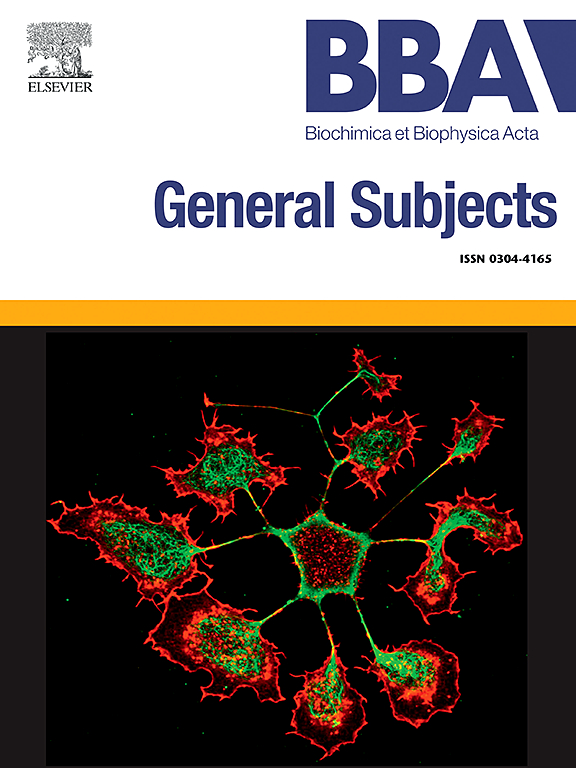间充质干细胞及其外泌体在放射治疗中的作用:一个新的机会或潜在的威胁
IF 2.2
3区 生物学
Q3 BIOCHEMISTRY & MOLECULAR BIOLOGY
Biochimica et biophysica acta. General subjects
Pub Date : 2025-05-26
DOI:10.1016/j.bbagen.2025.130823
引用次数: 0
摘要
癌症仍然是一个主要的全球健康问题,其特点是生物学机制复杂,临床表现多样。放射治疗是癌症治疗的一个关键因素。然而,辐射阻力是实现最佳结果的主要障碍。这种抗性与几个因素有关,包括肿瘤细胞的遗传和表观遗传变化,这些变化使癌细胞能够在辐射照射下存活和增殖。在这种情况下,间充质干细胞(MSCs)在肿瘤微环境中发挥着重要作用。由于其独特的特性,如自我更新,通过血液迁移到肿瘤和参与旁分泌信号,它们对了解癌症生物学和治疗反应非常重要。MSCs可以释放外泌体,促进细胞间通讯并影响肿瘤对放疗的反应。然而,间充质干细胞在癌症中的作用是复杂的,有时是矛盾的。在某些情况下,它们可能表现出肿瘤抑制作用,而在其他情况下,它们促进肿瘤生长和转移。这种双重性提出了关于它们对癌症治疗的总体影响的重要问题,特别是与放射治疗有关的问题。本综述将首先探讨间质干细胞及其外泌体作为肿瘤微环境中细胞通讯的关键介质的多方面作用,然后评估这些相互作用对放射治疗的影响,重点关注间质干细胞如何影响治疗效果以及利用其特性改善治疗结果的潜力。本文章由计算机程序翻译,如有差异,请以英文原文为准。
The role of mesenchymal stem cells and their exosomes in radiotherapy: A new opportunity or a potential threat
Cancer remains a major global health problem characterized by complex biological mechanisms and diverse clinical manifestations. Radiotherapy is a key element in cancer treatment. However, radioresistance is a major obstacle to achieving optimal results. This resistance is associated with several factors, including genetic and epigenetic changes in tumor cells that allow cancer cells to survive and proliferate despite radiation exposure. In this context, mesenchymal stem cells (MSCs) play an important role in the tumor microenvironment. Due to their unique properties such as self-renewal, migration to tumors via the bloodstream and involvement in paracrine signaling, they are important for understanding cancer biology and treatment responses. MSCs can release exosomes that can promote intercellular communication and influence tumor response to radiotherapy. However, the role of MSCs in cancer is complex and sometimes contradictory. In some contexts they may exhibit tumor suppressive effects, while in others they promote tumor growth and metastasis. This duality raises important questions about their overall impact on cancer therapy, particularly in relation to radiotherapy. This review will first explore the multifaceted role of MSCs and their exosomes as key mediators of cellular communication within the tumor microenvironment, and then assess the implications of these interactions for radiotherapy, focusing on how MSCs may influence treatment efficacy and the potential to harness their properties to improve therapeutic outcomes.
求助全文
通过发布文献求助,成功后即可免费获取论文全文。
去求助
来源期刊

Biochimica et biophysica acta. General subjects
生物-生化与分子生物学
CiteScore
6.40
自引率
0.00%
发文量
139
审稿时长
30 days
期刊介绍:
BBA General Subjects accepts for submission either original, hypothesis-driven studies or reviews covering subjects in biochemistry and biophysics that are considered to have general interest for a wide audience. Manuscripts with interdisciplinary approaches are especially encouraged.
 求助内容:
求助内容: 应助结果提醒方式:
应助结果提醒方式:


